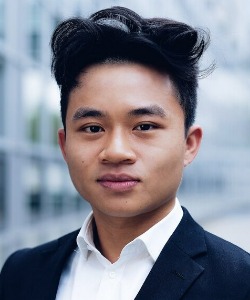2021 G-Research grant winners revealed
- Quantitative Research
Each month, we provide up to £2,000 in grant money to early career researchers in quantitative disciplines.
Our aim is to support and assist PhD students and postdocs conducting research, particularly with costs that may be difficult to get funding for elsewhere, for example, travel for those who are caring for children, or expenses for volunteer work related to research.
Learn more about our grant programme, including how you can apply and the work we support.
Read on to hear from our latest winners, their research and how our grants will aid their work.
October grant winners
Piotr Januszewski (Gdańsk University of Technology)

“I am a PhD candidate in computer science at the Gdańsk University of Technology. My supervisors are prof. Piotr Miłoś (from the Polish Academy of Sciences) and prof. Paweł Czarnul (from the Gdańsk University of Technology) and my current area of research includes planning methods and deep reinforcement learning agents.
“My recent paper “Continuous Control With Ensemble Deep Deterministic Policy Gradients” was published at the 2021 NeurIPS Deep RL Workshop. This work presents a comprehensive empirical study of multiple tools from the RL toolbox applied to the continuous control in the OpenAI Gym MuJoCo setting.
“One of the conclusions is that the normally distributed action noise, commonly used for exploration, is not required by the agent for successful training. With my co-authors, we introduce a new method, called ED2, that reaches state-of-the-art performance and is more stable during training and evaluation.
“The G-Research grant will help me finance my short period research visit at the University of Oxford where I will work on toddler-inspired active representation learning.”
Cristopher Salvi (Imperial College London)

“I am a Chapman Fellow in Mathematics at Imperial College London.
“My research focuses on developing deep learning and kernel-based models using tools from rough path theory, stochastic analysis and PDEs.
“The data I usually play with are complex signals traced by systems evolving under the influence of randomness, for example, irregularly-sampled, partially-observed, high-dimensional time series from finance, meteorology or healthcare.
“The G-Research grant will allow me to buy cloud computing resources to further develop the Neural SPDE model, a physics-informed neural architecture I recently helped design, which is able to learn solution operators of stochastic PDEs (like the stochastic Navier-Stokes equations) in a resolution-invariant way.”
Haochun Ma (German Aerospace Centre):

“I am a physicist working in the field of complex systems. My focus is on detecting causality drivers, learning dynamics, and deriving governing equations from time series data using ML. We develop the methods for controllable synthetic and chaotic systems (e.g. the Lorenz system, which is known for its butterfly shape), but we also apply our methods to real-world applications, such as financial, turbulence, or environmental data.
“Since these systems are often high-dimensional, they require a lot of computing power – this grant from G-Research will help me get the necessary hardware. ”
November grant winners
Jonas Berx (November winner):

“I am currently a postdoctoral researcher working in the field of Living Matter Physics at the MPIDS in Germany.
“My current research focuses on the theoretical biophysical aspects of life. I investigate why some types of living matter undergo a condensation transition, which manifests formal similarities to Bose-Einstein condensation in physics.
“During my PhD in Theoretical Physics at the KU Leuven in Belgium, I developed an iterative procedure – the BLUES function method – to approximate solutions of non-linear differential equations.
“Aside from my PhD and my current job as a postdoc, I also perform independent research on connections between interface growth and the topology of complex networks.
“G-Research’s grant will facilitate commuting between Germany and Belgium and reduce my carbon footprint, as I will be able to continue going by train.”
Maria Flora (CREST (Center for Research Economics and Statistics), CNRS and ENSAE, Institut Polytechnique de Paris (Paliseau, France)):

“I am a postdoctoral researcher at CREST, CNRS, Institut Polytechnique de Paris. Here, my main research is at the intersection between Bayesian learning and optimal control techniques.
“Specifically, the research goal is to incorporate climate change considerations into the economic agents’ financial decisions. To do so, a combination of integrated assessment modelling scenarios and Bayesian learning gives the agent an understanding of the climate-related system, which is instrumental in the agents’ financial decision making process, modelled by means of optimal control techniques.
“I will use the grant provided by G-Research to present my work at international conferences.”
December grant winner
Nikita Gouraniov (University of Oxford):

“My PhD studies (under Prof. Dieter Jaksch) revolve around the application of a class of data-compression schemes known as “Tensor Networks” to open problems in condensed matter physics.
“The research has resulted in a significant advance in the field of fluid dynamics that was recently published as ‘A quantum-inspired approach to exploit turbulence structures’; Nature Computational Science; (2022).
“This work will be presented at two major US conferences in March 2022 courtesy of the generous G-Research grant for scientists in quantitative disciplines.”
Congratulations to all our grant winners.
Learn more about our monthly grant and how you can apply.
